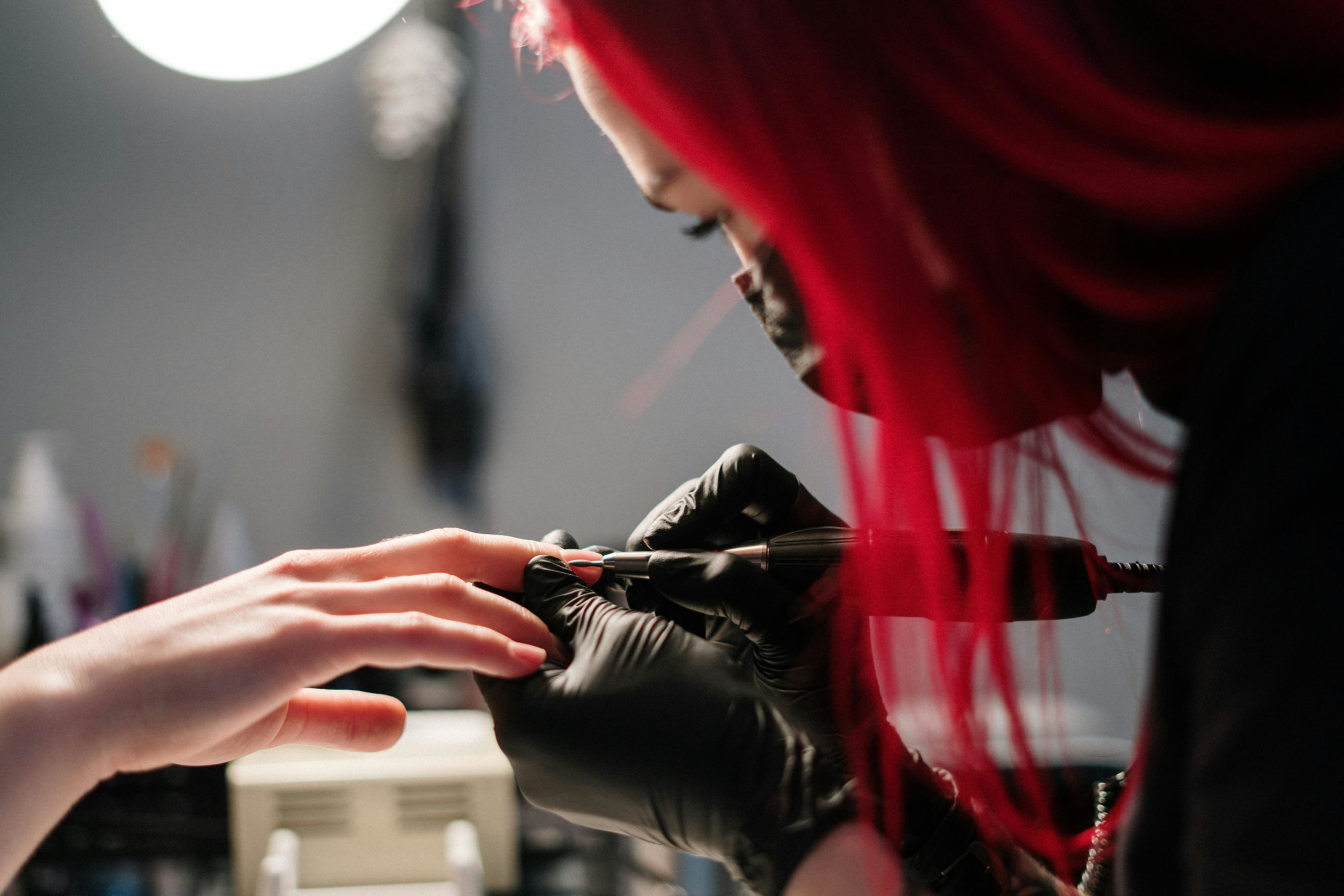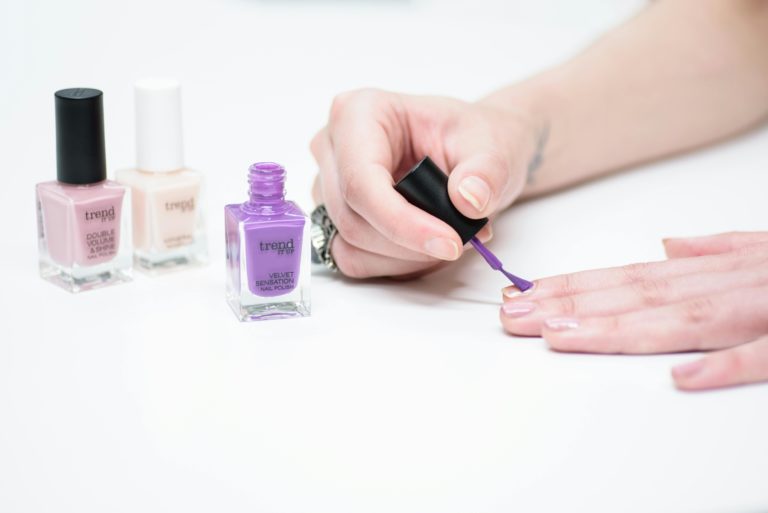The nail salon industry is notorious for its environmental footprint, with concerns ranging from chemical exposure to the disposal of hazardous waste. However, as awareness of environmental issues grows, nail salons are increasingly embracing sustainable practices to reduce their impact on the planet.
In this article, we’ll explore five sustainable practices that are transforming the nail salon industry and paving the way for a greener future.
1. Transitioning to Non-Toxic and Eco-Friendly Products
One of the most significant sustainable practices in the nail salon industry is the transition to non-toxic and eco-friendly products. Traditional nail polishes and nail care products often contain harmful chemicals such as formaldehyde, toluene, and phthalates, which can be detrimental to both human health and the environment.
Embracing Water-Based Nail Polishes
Water-based nail polishes are becoming increasingly popular as a safer and more eco-friendly alternative to traditional solvent-based polishes. These polishes are formulated without harsh chemicals and toxins, making them gentler on the nails and safer for salon workers and clients.
Using Natural and Organic Ingredients
Many nail salons are also opting for nail care products made from natural and organic ingredients, such as plant-based oils and extracts. These products are free from synthetic fragrances, dyes, and preservatives, reducing the risk of allergic reactions and environmental pollution.
2. Implementing Energy-Efficient Technologies
Another sustainable practice gaining traction in the nail salon industry is the implementation of energy-efficient technologies to reduce energy consumption and minimize carbon emissions.
Switching to LED Lighting
LED lighting consumes significantly less energy than traditional fluorescent or incandescent lighting, making it an ideal choice for nail salons looking to reduce their energy bills and environmental impact. LED bulbs also last longer and produce less heat, creating a more comfortable and eco-friendly salon environment.
Investing in Energy-Efficient Appliances
From nail dryers to pedicure chairs, nail salons are investing in energy-efficient appliances that meet strict energy efficiency standards. These appliances are designed to consume less electricity without compromising on performance, helping salons reduce their carbon footprint while saving money on utility bills.
3. Minimizing Water Usage and Waste Generation
Water usage and waste generation are significant concerns in the nail salon industry, but sustainable practices are helping to minimize these environmental impacts.
Installing Water-Saving Fixtures
Nail salons can reduce water consumption by installing water-saving fixtures such as low-flow faucets and toilets. These fixtures are designed to minimize water wastage without sacrificing water pressure or performance, helping salons conserve water and lower their utility bills.
Proper Waste Management and Recycling
Proper waste management and recycling are essential for minimizing the environmental impact of nail salons. Salons can implement recycling programs for paper, plastic, and other materials, as well as proper disposal methods for hazardous waste such as nail polish bottles and acetone-soaked cotton pads.
4. Promoting Ethical and Fair Labor Practices
Sustainability in the nail salon industry extends beyond environmental concerns to encompass ethical and fair labor practices, including fair wages, safe working conditions, and respect for workers’ rights.
Providing Fair Wages and Benefits
Nail salon owners can promote sustainability by providing fair wages and benefits to their employees, including competitive salaries, healthcare coverage, and paid time off. Investing in the well-being and livelihoods of salon workers not only fosters a positive work environment but also contributes to the long-term sustainability of the industry.
Ensuring Safe Working Conditions
Safety should always be a top priority in nail salons, with proper ventilation systems in place to reduce exposure to harmful fumes and chemicals. Additionally, salon owners should provide adequate training and protective equipment to ensure the health and safety of their employees.
5. Educating Clients About Sustainable Practices
Educating clients about sustainable practices is essential for promoting environmental awareness and encouraging eco-friendly behaviors both inside and outside the salon.
Offering Sustainable Nail Care Options
Nail salons can educate clients about sustainable nail care options, such as water-based polishes, natural nail treatments, and cruelty-free products. By offering these alternatives, salons can help clients make more environmentally conscious choices without sacrificing quality or style.
Providing Tips for Eco-Friendly Nail Care at Home
In addition to offering sustainable options in the salon, nail technicians can provide clients with tips and resources for eco-friendly nail care practices at home. From DIY nail treatments using natural ingredients to proper disposal methods for nail polish bottles, empowering clients to adopt sustainable habits beyond the salon benefits both the environment and their overall well-being.
Conclusion
The nail salon industry is undergoing a transformation as it embraces sustainable practices to minimize its environmental impact and promote a greener future. From transitioning to non-toxic and eco-friendly products to implementing energy-efficient technologies and promoting ethical labor practices, these efforts are making a positive difference for the planet and the people who inhabit it.
FAQs
Q1: Are water-based nail polishes as durable as traditional solvent-based polishes?
Water-based nail polishes can be just as durable as traditional solvent-based polishes, especially when paired with a quality base and top coat. However, they may require more layers and longer drying times, so it’s essential to follow application instructions carefully for best results.
Q2: How can I find a nail salon that prioritizes sustainability?
You can find nail salons that prioritize sustainability by researching online reviews, asking about their product and waste management practices, and looking for certifications such as eco-friendly or cruelty-free labels. Many salons also openly advertise their commitment to sustainability on their websites or social media channels.
Q3: What can I do as a client to support sustainability in nail salons?
As a client, you can support sustainability in nail salons by choosing salons that use non-toxic and eco-friendly products, minimizing water usage during your appointments, and properly disposing of nail polish bottles and other waste. You can also advocate for sustainable practices by sharing your preferences with salon owners and encouraging them to prioritize sustainability in their business operations.
Q4: Are LED nail dryers safer for the skin and nails compared to traditional UV nail dryers?
LED nail dryers are generally considered safer for the skin and nails compared to traditional UV nail dryers, as they emit lower levels of UV radiation and produce less heat. However, it’s essential to follow manufacturer instructions and limit exposure to avoid any potential risks.
Q5: How can nail salon workers advocate for fair labor practices in the industry?
Nail salon workers can advocate for fair labor practices in the industry by organizing collectively, raising awareness about labor rights and issues, and collaborating with community organizations and labor unions. By speaking out and demanding fair wages, safe working conditions, and respect for their rights, salon workers can effect positive change and improve conditions for themselves and future generations.



